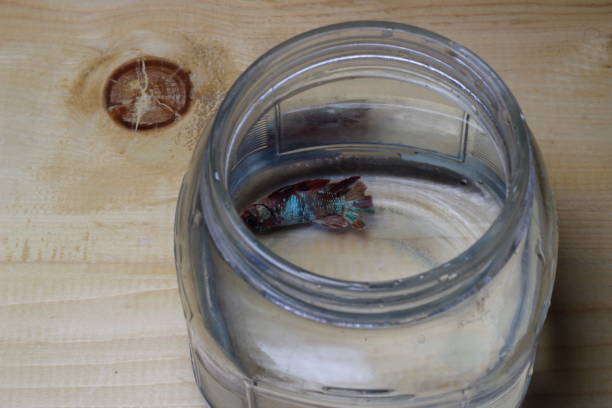Last Updated on 1 year by admin
Is Betta Fish laying on the bottom of the tank breathing heavily?
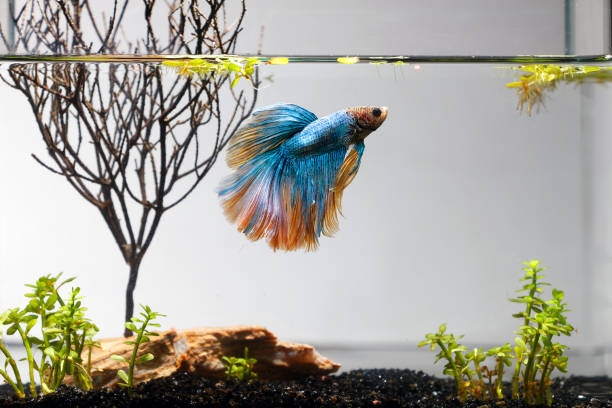
Bettafish are vibrantly colorful. It reacts to its surroundings often swimming enthusiastically. If an inactive device occurs the first reaction is usually panic. Does it happen that betta fish sit under tanks? Why are there no moves? Do we have any concerns? There are a variety of causes for the betta to lay in a tank, some of which are commonly found and harmless, and others are signs or symptoms of health issues. How do you know what you’re talking about?
11 reasons why Betta fish lay on the bottom of the tank
The Betta fish owner is likely to experience a variety of bizarre behaviors. Nevertheless the sight of bettas in tank is frightening. Do sharks turn their fins? Are there any signs? Will things finally get better? Why does my baby breath so fast? In general, a Betta acts in the opposite situation where the water quality is not in the healthy range. Usually it is a behavioral condition and some people have older age. Tell us the reason for it. Healthy Betta needs personal privacy, frequent watering changes, & well balanced diets.
Introduction To Betta Keeping
Whatever fish you have it is impossible to find the bottom in the tank. These behaviors are often an indicator that things have gone wrong in the aquarium. Putting bare feet on substrates can eventually result in re-infection from scratches and scratching of fins, and fish particularly have torn fins. Unfortunately bettas can sometimes lay their heads up against tanks in pet shops. This trick can fool beginners by believing that their fish will behave as they come home.
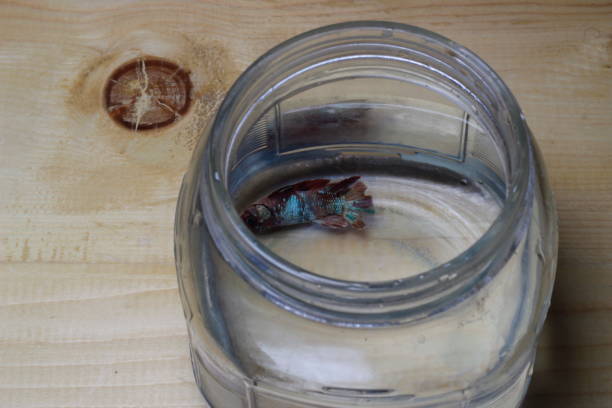
Poor diet
Bettafish have many varieties in nature including vegetation, algae, insects and detritus for their consuming. Although this can certainly be replicated in the aquarium environment, an excellent fish flak or fish pellet should provide the fish optimum nutrition. However, poor quality food that can be used for other types of fish can’t meet the essential vitamins your fish requires for daily activities like swimming. Irregular nutrient intake can also result in poor nutrition in a fish’s digestive system. Most betta fish foods contain ingredients that do not contain any nutrition. The condition may also result in diarrhoea or constipation.
Swim Bladder Disorder
The swimming ureter controls fish buoyancy at the water’s bottom. Its typical symptom is difficulty in maintaining standing upright positions, bloating and backward bending and falling or floating in the waters surface. Swim bladder issues remain unclear, although it is thought to be primarily a secondary symptom of a bigger problem such as water pollution and a variety of illnesses. A way in which betta can also get affected is if he takes in excess oxygen when eating foods on the surface of a lake. Symptoms of swimmer’s bladder disorders usually include improved water quality, changing diet, and possible medications.
Sleeping Betta Fish
Yeah. Fish sleeps. But this one is different from others. Rather, fish have REM stages which occur during their night sleep cycles. This can create interesting behaviors when a creature cannot sit still. Some new hobbyists may feel sick because they have an unusual behavior when lights are turned off but in most situations you just want the best thing. Let me tell if the fish hasn’t sleep. Generally, fish prefer the most resting spots once their lamps go off. The plants are often planted to the ground or surrounded with plants that have leaves behind the decoration.
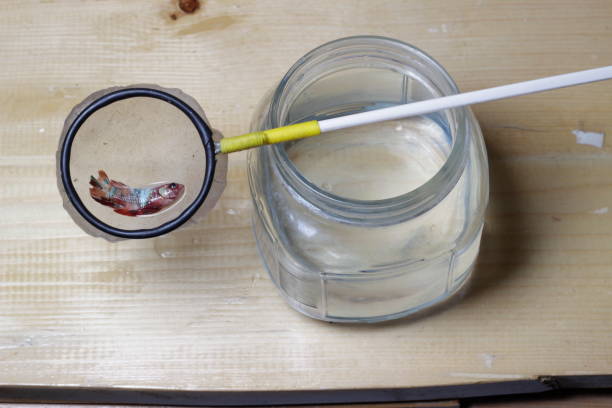
Tank Mates
Yes if you have fish it can easily be kept as a betta. Generally, however, this is dependent upon a fish’s personality. Some betta fish don’t even care about the presence of other fish in aquariums. Other people accept some and don’t. Then there’s the few lucky hobbyists who own fish who will accept any new tank addition, but betta fish can change the mind at any time. There’s still many proven species which make perfect fish tank mates. If you have female bettas you could also build betta fish sorority tanks though this setup may seem more advanced.
Tanks
There is a common misconception that the bettafish do not require very much room on betta fish tank. It may be a good thing, though it does flourish if it is given the chance of flourishing. Betta fish are commonly confined in 1-gallon betta tank without undergoing nitrogen cycles. However, beginner hobbyists may still wonder where their fish is now. A good sized aquarium requires 5 gallons of water to keep it heated. Editor’s choice? Hobbyism can add live plants and suitable tankmates while improving water quality and ensuring that betta is nourished.
Wrong pH
Even worse is perhaps an inaccurate pH. In wild animals and plants, fish are found in slightly acidic conditions because tannins enter the aquarium water column during the break-up of organic matter. Since they have been bred in freshwater aquaculture for many years, most bettas adapt well to comparatively lower pH ranges compared with fish. Many fisherman maintain an aquarium pH between 8.0 and 7.0. Problems arise because the pH is measured using the logarithm, which makes the difference between numbers an exponential shift in the pH.
Water parameters
Betta fish require an adequate size aquarium as well as a full-cycle heated aquarium. Often these creatures get buried under water in unfilled tanks to die from ammonio poisons or other pollution in the waters. Keeping water temperature correct is a simple task. Bettafish are required for a maximum amount of 0.5 mg/kg ammonia. As you can see, excess levels of this parameter could cause the Betta to rapidly deteriorate, leading to death. Bettas are found in South Asia in extremely acidic conditions, with pH values below 7.1.
Filtration issues
The betta fish often need additional filters that are appropriate for betta tanks. The search for the perfect fishing filter is a challenge. The water should last 5 gallons. It must not move too hard so it’ll push the fish into the tanks. This can sometimes be an issue when bettakeepers use high re-flow filters. Consequently betta fish can be pushed around and hurt. Besides contaminating the water with filtered water bettas have a tendency to become a problem when there are too many bacteria in them.
Lack of interaction
As mentioned in the previous section, betta may be bored in their environment if there is little to do. Despite the nature of these bettas it requires more than just feeding them. An exhausted betta could sink beneath the tank in an attempt to find a new place… I’ll bet you can. Although fish are not intelligent creatures, they do love being visited by their owners everyday. They will establish routines around feeding and maintaining the tanks. Just watch how your bettafish react to the next visit!
Older Betta Fish
As we age, bettas tend to become weaker. They are unable to swim straight from the top to the bottom of the aquarium and may rest on leafy or aquatic equipment. If your bettas are exhausted you can take some time off to the bottom. I’ve got one! But unfortunately a number of bets are older. Keep watching your fish and give your catches a good day.
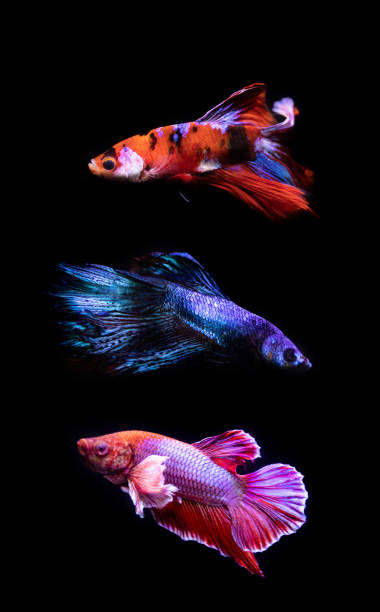
Ammonia poisoning
Okay. Not everything your bettas have in a deep water aquarium can cause any harm. Ammonia is an animal byproduct and until beneficial bacteria convert the ammonia into nitrite, they are perfectly safe for use in the tank. The fact is that ammonia will kill your bette. Ammonia poisoning has a devastating affect on fishes. The good news is that tests can be performed easily and quickly without difficulty. All ammonia levels above 0.3 mg/L are dangerous to your babies.
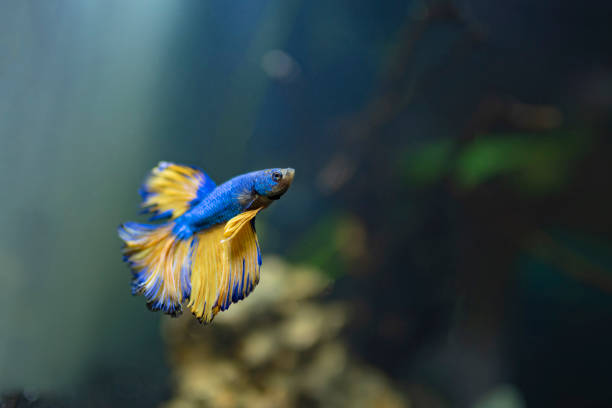
Nitrate poisoning
Nitrile nitrates convert to nitrite. Nitrite is a nitrate. So, the same way ammonia kills fish, nitrites can also kill them. Its a very useful idea for those who have contaminated their water and haven’t been drinking enough nitrates. Even if the ammonia poisoning has been found permanently in your betta, the betta will recover fully after the water level is controlled. Immediately check water for any possible nitrate poisoning and determine what you must do.
Stress
When looking at fish, the stress level isn’t usually something we think about. But for you to keep your betta satisfied you have to consider stress and anxiety levels as your main priority. Many things are stressful for Betta but none immediately comes to your mind after seeing this tank. Stress can come from an aggressive tankmate or lack of space in your room. If betty feels overwhelmed, she could spend a good chunk of time hidden beneath her tanks.
Is Betta laying on the bottom of the tank?
The Betta splenden (Betta splenden) displays many unusual behaviour and has a distinct personality, making them a perfect choice if you’ve never caught a fish before. Their quirky personality has a negative aspect : Bettas like to swim or lie in weird places in their tanks. It is difficult for novice aquarists to distinguish betta from other animals who seem sick and require help. List five good reasons betty fish lay sideways inside your tank?
Lazy
Do fish live in tanks during their days? Do we need any help? No way. A few bettafish have lazy habits. Abetta tangled with living vegetation and dipped in the wind a lot of times a day. Another brightly colored female betta was sleeping on the logs all day, an unusual sight. Like sleep bettas the lazy betta should always maintain a good appetite and swim as normally as they please. However, a lazy betta has the potential for overweight. If your behavior starts immediately, watch for signs that you’re experiencing problems, make proactive decisions and make water changes for safety.
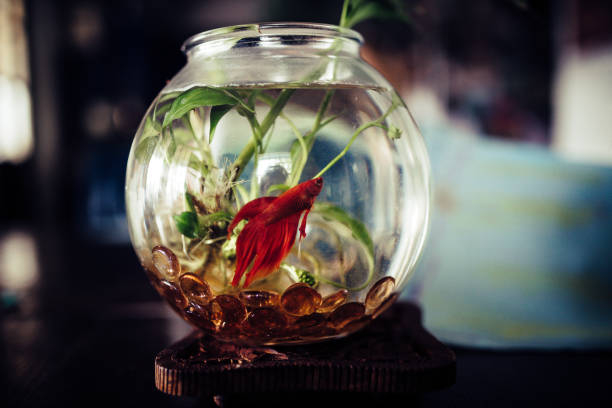
Bored Or Depressed
The betta are curious fish which are active in contact with their environment. Those exploratory behaviors are their main means of searching for food. Bettas do not like the bare tanks and can be very depressed or bored without plants and decoration. Occasionally the betta can also pick up their fin and rub against the substrate.
Advanced age
The fish are normally more active with age than any animal. Aquarium bettas usually stay alive at least for 5 to 6 years. When the children are old, it is common for them to spend less time exploring their water tanks or playing with toys. Many old bettas lose vision, which subsequently reduces their activity.
Developing health problems
It’s not unusual for healthy bettas to lie in the tank to sleep, act lazy and bored but a lot of them show signs of disease or ill health. Typically, your baby may get anxious and down after a day or more until symptoms start appearing. The symptoms are not as severe and can be severe.
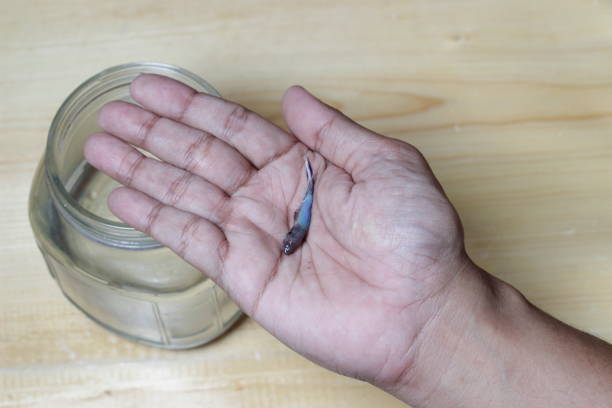
Symptoms Of A Stressed Or Sick Betta Fish
When you see these symptoms it’s important that you look closely at your baby’s aquarium. If you know if your tank or water parameters can be affected, you can begin tackling this problem quickly.
Figuring out why your betta fish lays on its side at the base of the aquarium
My friend found Betty a strangely friendly fish I kept. Because people are protected they usually place a couple of aquatic species to solve the problem, but this can be difficult sometimes. What is betta fishing? Foul waters conditions may make fish lethargy due to stress. Another common cause of fish not moving out of the bottom would be a filter current so strong it could cause a fish to swim too comfortably.
It may be sleeping
Betta fish needs rest as much as any other animal does and sleeps. The fish may have found an ideal place to rest at the bottom of the aquarium and nap during the day. Sometimes the Betty can rest in the middle of the tree near their tank because that’s what they’re doing. Bettas aren’t nocturnals therefore their sleeping patterns require active daytime sleep and sleeping through the night or waking up in darkness. They could be sleeping for about one hour in alternating periods, several times each morning. Betta fish likes to lie on their sides. This is a characteristic that helps increase their popularity with fishermen.
Stress or disease
Several diseases can put the fish in their tanks. Unlike most fish, their immunity is weaker than most fish. You may not have solved the problem mentioned above but you have bad news in your mind. If hanging out at the bottom is a combination of unusual behaviors such as dark eye color loss, inflamed skin spots, etc., then your Bette is probably suffering from a recurring infection – so you should definitely worry. This is a very common pattern of symptoms. In wild dog slushie When you have seen female bettas wriggling their belly and have decided they don’t have constipation it could be because they were egg-bound.
Filter current is too fast
Betta isn’t actually needing a filter as it can become tired when the output voltages are too intense in the fish’s big sized fins. The portion of a Betta fish that does not require filters is wrong, but it should definitely be used in small fish tanks with less than 50 gallons. Your aquarium kit has an integrated filter which is normally very strong. Typically selective breeds of Bettafish have large fins causing difficult swims through turbulent water. Also, if the Betta is not actively moving and enjoys relaxing under a tank, try lowering water circulation through the filter.
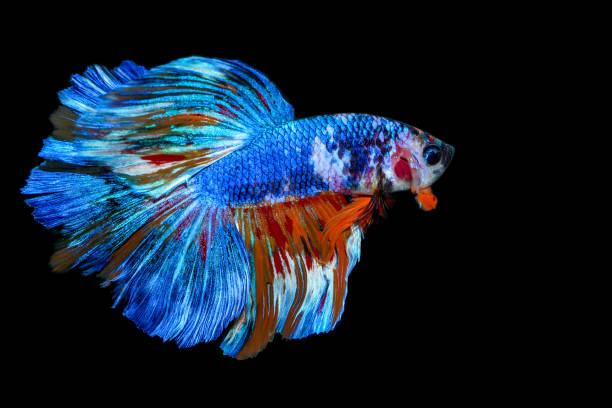
High ammonia levels
If your betta gulps heavily while sitting down on the ground then the tank could contain ammonia problems. The ammonia spike could cause serious health problems for aquatic fish. Can you confirm that you have ammonia poisoning? The Seachem Ammonia Alert Sensor can easily measure ammonia levels within fish tanks. The ammonia measurement software keeps analyzing levels continuously and lasts over a year. The results are impressive, considering the price. Getting back to the root cause is also a complex task in some cases. The main reasons for higher ammonium concentration are as follows:
It has a malfunctioning Swim Bladder
Tottand Beean One reason Bettas stay on bottom and swim sideways is a swimming bladder disorder. (See the full guide I wrote on this topic). Bettefish have narrowed the swimming bladders primarily due to overfeeding and constipation. The belly swelling inhibited the function of the water bladder. It doesn’t have a lethal effect, but it really affects the fish. Betta fish sometimes spends most time in shallow water because the bowels are difficult to move due to the swimbladder problem.. It could also be unstable as it goes up but turns on sideways.
It has Nitrate poisoning
By a different cast. Long-term exposures to nitrates have often been found in fish that have lethargized in aquarium waters. Does Bettas’ colour gradually disappear? Does your diet lack appetite? Can fish be so breathless they can’t even breathe? If you are finding any of these indications, it may be because Betta is poisoning it with the nitrates that it contains in the water of your tank. The following link will help you understand all the facts about the condition, and how it can be treated.
It’s too hot
In summer a swimming pool could get quite hot. Warm water releases oxygen very quickly causing your Betta to gash out of breath. Betta fish do have a labyrinth that breathes in air but can still die from inadequate oxygenation of its water. The sudden temperature change can damage your pet fish, or beneficial bacteria within the aquarium – maybe even kill them too. You can install a blower directly on the bottom of a aquarium. Another obvious solution is the cooling of the rooms.
The water is cold
Like all coldblooded animals, Bettans can never tolerate cold water. These tropical fish flourish in sea waters containing temperature from 75 to 82 degrees Celsius (24-28 in Celsius). When the water is too warm, your body’s metabolism slows. The animals are lethargic, so spend time in the water. Bring up the temperature slowly in case the problem appears. If by chance the aquarium does not include a heater, do a quick search for a tank that holds 3-5 gallons of water.
Too much current
Betta fish prefer slower currents and less stress to them. If you consider the baby breathing in their mouth, this becomes logical. The pressure from these tanks on the bottom of the tank can be exhausting. Unlike the old woman, the older woman cannot handle this situation in any capacity. And they’ll have no energy for fighting the current or getting the air they need at age 60. Wate flow is too fast.
Sleeping
The fact that a Betta fish can be found in the tank does not mean you shouldn’t worry. Betta fish sleep for 12-14 hours every day, so you can catch them napping occasionally. They usually sleep at night though they can take some nap every night at least 14 times per day. Until they spend excessive time under the tank or show the more concerning symptoms, it doesn’t matter.
Older fish
We all want to keep bettas swimming until they die out of cancer. But the truth is the bettafish live between two and five years. And like how we lack energy when we’re young, your fish might also be slowing down. Simply put the tanks on bottom, it takes less work. Generally older babies need more rest and are therefore more comfortable at the bottom of the tank.
Temperature shock
They are also hardy, so they cannot tolerate extreme heat conditions. It must remain at 76-80° C, otherwise temperature shock can cause serious complications and damage. The temperature in your tank may hurt, you’ll be unable to fight infection and it may even cause you to die in a tank. It is essential that the bettas temperature stay constant to grow.
Aquarium is too small
Although betta fish live within a small aquarium, there’s certainly nothing too big here. Try to get three gallon aquariums otherwise your fish could become bored. Also avoid aquariums with sharp edges, and don’t use fishbowls. These tanks will disrupt what your betta sees and could make them stressed out.
Swim Bladder Disease
Swim bladder disease has become one of the more frequent ailments in fish and has also appeared in bettas. This can be caused by cold water temperature, excessive eating, bacterial infection, and parasitoses. Swim bladder disease occurs when fish swim erratically and are unable to dive.
Recovery
Although swim bladder disease affects fish, it is easy to treat and makes it healthy again. Initially stop eating the food for at least 3 days to give the stomach time to heal. When you’re done with this trip, take frozen swine and microwave it a couple of seconds to thaw it, remove the skin and feed your baby. Do it 3-4 days before you move on to non-floating seafood. The betta eats more calories because they spend more time inside the body. If your baby recovers, then you must continue to use black worms and bloodworms.
Why is my fish breathing fast at the bottom of the tank?
Rapid breathing may suggest many things. The problem is usually caused by traffic around the house or a nuisance fish. New fish breathes very slowly when they come into contact. It is a good idea to check the levels of nitrates, ammonia and nitrates in the fluid you use.
Why does my betta look like its breathing heavy?
A common cause of bad breath is stress. There are numerous reasons for stress, which must be identified. Remove any aggressive fish from the aquarium when they are in your tank. When tanks get too small (surface areas are limited), get new tanks.
What does it mean when your fish lays on its side?
During swimming bladder problems the swimming bladder fails in various ways. Swim bladders are gas-filled internal organs assisting the bone fish maintain a buoyancy. It relates to an issue that affects the bladder and does not involve a single illness or problem.
Why is my fish laying on its side but still breathing?
Tell me the problem. Symptoms of a swollen belly or a swallowage of excess air are common causes. Sometimes consuming excessive fish might take some air, in the sense of controlling the buoyant effect. For cured fish it is necessary that they investigate the origin of their unusual behavior.
Is it normal for a fish to lay on its side?
Nitrite poisoning and nitrification are the two major causes for Betta’s laying on their side. Generally, aquarists are interested in ammonia, which can lead to poison in fish. Tell me the answer? It occurs when nitrifying bacteria eat partially digested ammonium.
Is it normal for betta fish to be at the bottom of the tank?
Betta fish sleeps like any other animal. The sleep patterns are exactly like that of the human body. They prefer to sleep in the night rather than be active in the afternoon. If you find them not sleeping well, you may find them lying under the tank.
What should I do if my betta fish is laying on the bottom?
If you see a betta floating around in a tank on top you can be certain he is having a swimming bladder disease. You have to take him to the hospital for bladder cancer and he will recover easily. It may be a sign of a dying betta fish.

